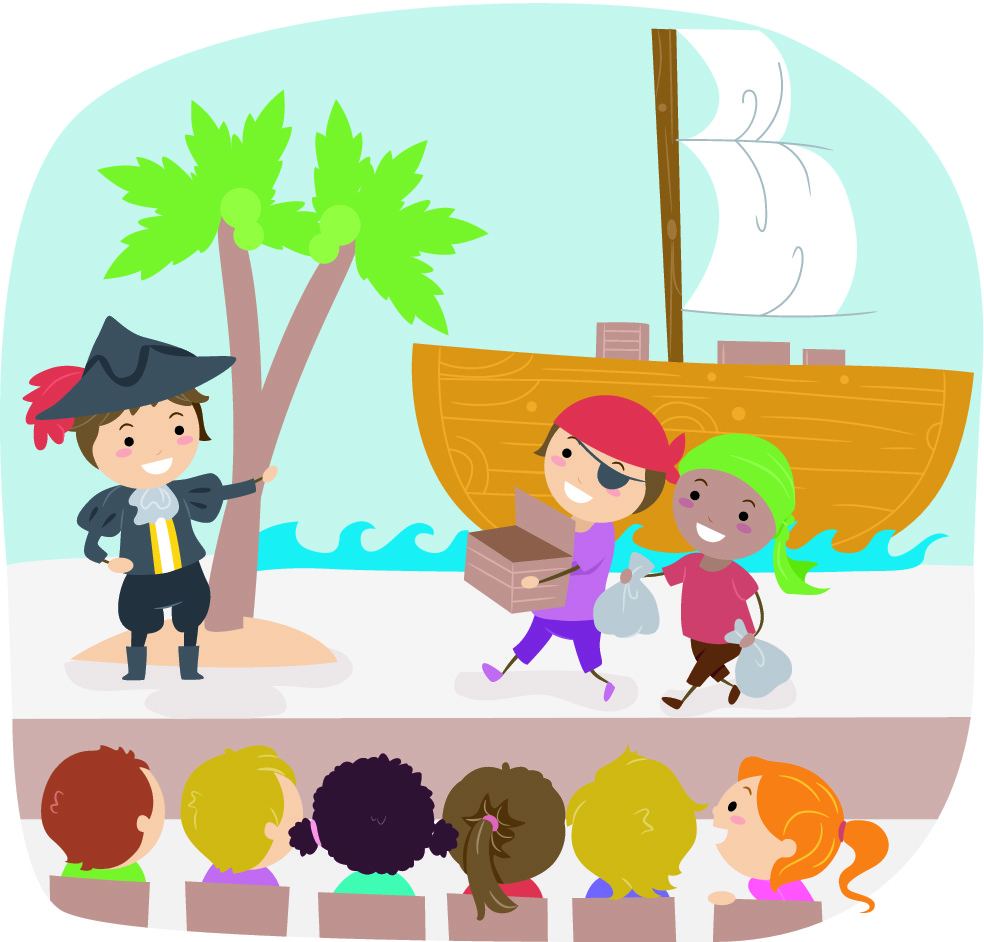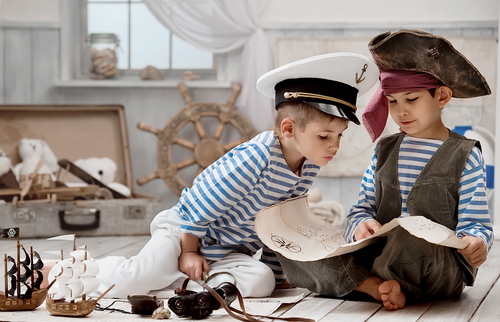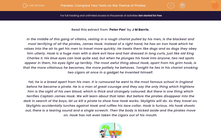Read this extract from 'Peter Pan' by J M Barrie.
In the middle of this gang of villains, resting in a rough chariot pulled by his men, is the blackest and most terrifying of all the pirates, James Hook. Instead of a right hand, he has an iron hook which he raises into the air to get his men to travel more quickly. He treats them like dogs and as dogs they obey him utterly. Hook is a huge man with a dark evil face and hair dressed in long curls, just like old King Charles II. His blue eyes can look quite sad, but when he plunges his hook into anyone, two red spots appear in them, his eyes light up terribly. The most awful thing about Hook, apart from his grim hook, is that the more villainous he becomes, the more politely he behaves. Tonight he lies in his chariot smoking two cigars at once in a gadget he invented himself.
Yet, he is a breed apart from his men. It is rumoured he went to the most famous school in England before he became a pirate. He is a man of great courage and they say the only thing which frightens him is the sight of his own blood, which is thick and strangely coloured. But there is one thing which terrifies Captain James Hook. We will learn about that later. But before the pirates disappear into the dark in search of the boys, let us kill a pirate to show how Hook works. Skylights will do. As they travel on, Skylights accidentally lurches against Hook and ruffles his lace collar. Hook is furious. His hook shoots out, there is a tearing sound and a single screech. Then the body is kicked aside and the pirates move on. Hook has not even taken the cigars out of his mouth.

Now read this extract from 'Treasure Island', by Robert Louis Stevenson.
I remember him as if it were yesterday, as he came plodding to the inn door, his sea-chest following behind him in a hand-barrow—a tall, strong, heavy, nut-brown man, his tarry pigtail falling over the shoulder of his soiled blue coat, his hands ragged and scarred, with black, broken nails, and the sabre cut across one cheek, a dirty, livid white. I remember him looking round the cover and whistling to himself as he did so, and then breaking out in that old sea-song that he sang so often afterwards:
“Fifteen men on the dead man's chest— Yo-ho-ho, and a bottle of rum!”
in the high, old tottering voice that seemed to have been tuned and broken at the capstan bars. Then he rapped on the door with a bit of stick like a handspike that he carried, and when my father appeared, called roughly for a glass of rum. This, when it was brought to him, he drank slowly, like a connoisseur, lingering on the taste and still looking about him at the cliffs and up at our signboard.
“This is a handy cove,” says he at length; “and a pleasant sittyated grog-shop. Much company, mate?”
My father told him no, very little company, the more was the pity.
“Well, then,” said he, “this is the berth for me. Here you, matey,” he cried to the man who trundled the barrow; “bring up alongside and help up my chest. I'll stay here a bit,” he continued. “I'm a plain man; rum and bacon and eggs is what I want, and that head up there for to watch ships off. What you mought call me? You mought call me captain. Oh, I see what you're at—there”; and he threw down three or four gold pieces on the threshold. “You can tell me when I've worked through that,” says he, looking as fierce as a commander.

Now let's have a go at the questions.
You can read these two extracts at any time by clicking on the red help button on the screen.
Let's get started!







